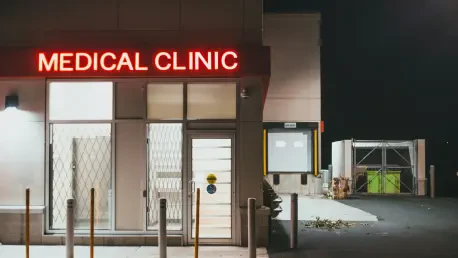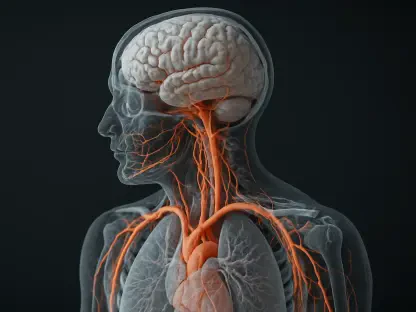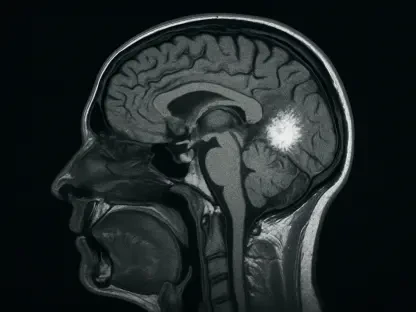In the heart of Gaza, a silent yet pressing crisis has taken the stage, affecting healthcare with severe consequences. The ongoing Israeli military actions combined with a stringent blockade have left medical infrastructure teetering on the brink of collapse. The consequences are immediate and devastating, affecting a wide range of critical areas, including eye healthcare and pediatric services. Scarcity of essential medical supplies is widespread, placing thousands of lives at risk. Reports indicate that already 1,500 people are blind, with an additional 4,000 at risk of losing their vision due to a lack of necessary surgical instruments and consumables. The scenario extends beyond eye issues, affecting many individuals with limb problems and contributing to an alarming increase in health issues among children.
Many professionals in Gaza’s healthcare system voice a collective concern, indicating an imminent catastrophe if immediate interventions are not enacted. Among them is Dr. Abdul Salam Sabah from the Eye Hospital, who has warned of a health sector on the verge of plummeting into chaos. Critical materials necessary for operations, like helium and fine sutures essential for eye surgeries, are vanishingly scarce. The prevailing health crisis also implies a broader humanitarian challenge, one requiring urgent and immediate resolution.
Impact on Eye Healthcare and Pediatric Services
Gaza’s hospitals and clinics are feeling the acute strain of this crisis, significantly affecting departments such as eye healthcare and pediatric wards. A severe shortage of medical supplies compounds existing challenges, leaving health professionals with limited tools to address pressing needs. Eye healthcare is particularly hard-hit, with thousands at risk of vision loss amid shortages of critical surgical supplies. The scarcity of materials such as helium and fine sutures not only delays essential surgeries but also increases the risk of permanent disabilities for many patients.
Children, often the most vulnerable in crisis settings, are bearing the brunt of the deteriorating healthcare environment. Pediatric services are struggling under intense pressure, accentuated by a 37% depletion in necessary medicines and nearly 60% in medical consumables. These shortages are particularly damaging for emergencies and life-threatening conditions, amplifying the risks faced by young patients presenting with cancer, heart disease, and other serious ailments. Without intervention, the situation threatens to devolve into a catastrophic health decline for Gaza’s youth, potentially leaving long-lasting impacts on their well-being.
Widespread Implications of Supply Blockade
Beyond specific departments, the blockade’s ramifications resonate throughout Gaza, affecting an array of medical services and suppliers. Depleted inventories are posing critical challenges, hampering effective responses to emergent health crises. Patients suffering from chronic conditions like cancer, kidney failure, and heart disease are among the most affected, with diminished access to essential treatments. The lack of basic medical supplies has impaired capacities in handling urgent cases, rapidly transforming manageable conditions into life-threatening situations.
The shortage of medical consumables and medicines is emblematic of a broader systemic issue, impacting all facets of healthcare service delivery. Healthcare professionals are sounding alarms about the looming collapse of medical infrastructure, highlighting an urgent need for international intervention. They emphasize that without a concerted global effort, alleviating the humanitarian disaster is highly improbable. Under these dire circumstances, every day that passes without action further exacerbates the crisis, deepening an already severe humanitarian emergency.
Need for International Intervention
In the heart of Gaza, a critical crisis in healthcare has erupted, causing severe ramifications. Israeli military actions, coupled with a tight blockade, have pushed medical infrastructure to the edge of collapse. This dire situation affects several crucial areas, including eye healthcare and pediatric services. The scarcity of essential medical supplies is rampant, threatening thousands of lives. Current reports reveal that 1,500 people are already blind, with 4,000 more at risk of losing their sight due to a lack of vital surgical tools and supplies. Beyond vision-related issues, this crisis impacts those with limb problems and exacerbates health issues among children.
Healthcare professionals in Gaza express serious concern, forewarning an impending catastrophe without prompt intervention. Dr. Abdul Salam Sabah, from the Eye Hospital, has highlighted the health sector’s precarious state, noting a severe shortage of critical materials like helium and fine sutures needed for eye surgeries. The ongoing health crisis poses a significant humanitarian challenge, demanding urgent resolution.









